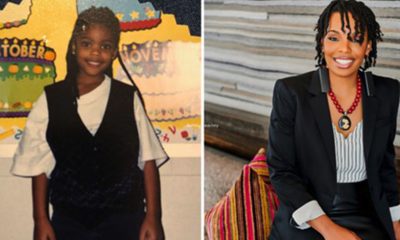Book Reviews
Book Review: Treating Violence: An Emergency Room Doctor Takes on a Deadly American Epidemic
Well, thank you so much to your co-worker. That’s where you got this ick, this scratchy-throat, achy-body, upset-stomach, can’t-sleep virus. He sneezed and that’s all it took. Now you’ve got what he had and you’re trying not to spread it anymore. As you know from experience, and as attested in the new book “Treating Violence” by Rob Gore, MD, epidemics affect everybody. In this book, the scourge is violence.
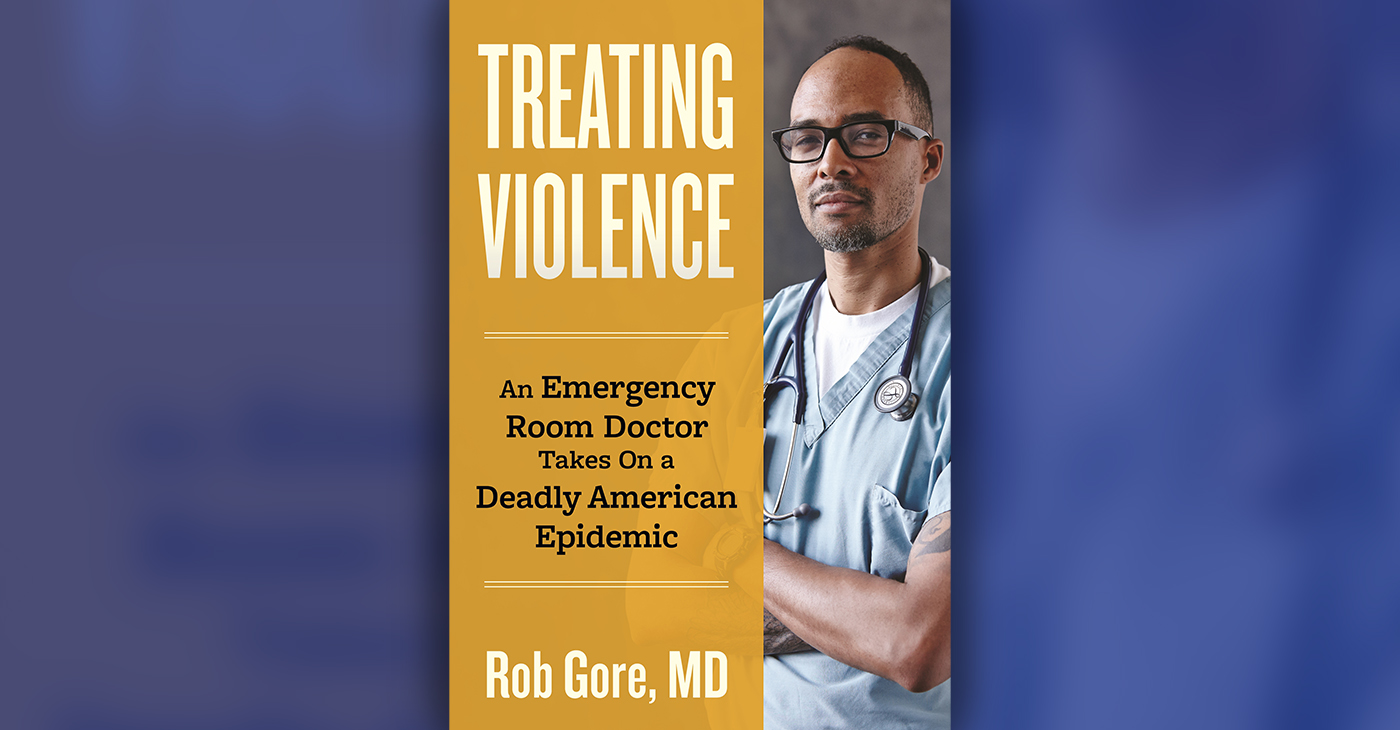
By Terri Schlichenmeyer
The Bookwurm Sez
Well, thank you so much to your co-worker.
That’s where you got this ick, this scratchy-throat, achy-body, upset-stomach, can’t-sleep virus. He sneezed and that’s all it took. Now you’ve got what he had and you’re trying not to spread it anymore.
As you know from experience, and as attested in the new book “Treating Violence” by Rob Gore, MD, epidemics affect everybody. In this book, the scourge is violence.
Once upon a time, Gore had a brother. Angel wasn’t biologically related to Gore, but within a short time after Gore’s parents fostered the young boy, they considered each other siblings.
They tussled and played together. Gore watched over his “brother” and when Angel got older, he did the same for Gore. But Angel was anything but an angel and, slowly, he turned to hustling drugs.
Gore says he wishes he’d done more to stop him. Eventually, Angel went to prison.
Growing up in Brooklyn, Gore knew that the streets were not kind to people who looked like him, people with Brown or Black skin, and he understood early how privileged he was.
He was granted – and sometimes squandered – the best education. In high school, after he was given a chance to “shadow” sports medicine practitioners and after he noticed a lack of Black people in medical careers, he saw his own future. Gore attended Morehouse College, with an eye toward helping Black and Brown people in crisis.
According to the Centers of Disease Control and Prevention (CDC), Gore says, “homicide… is the number-two cause of death for Black males ages one to nine…” but there are ways to identify issues before they become dangerous, out-of-control problems.
The process moves through examination of a person’s childhood traumas and what happened to them as adults, followed by listening, validating, and asking for calm.
Gore understood this as a young doctor, and he decided to do something about it.
“Lack of funding was a roadblock” for it, he says, “but the seed was planted, and my conviction continued to grow.”
You’re tired of attending funerals, and tired of reading about another dead child somewhere. You’re ready to act. You’re ready to read “Treating Violence.”
Indeed, this book might light a fire under you.
Gore first explains what street violence does to Black communities and families, which is shocking and upsetting.
This begins his biography, which is a brief (too-brief!) set-up for how and why Gore ultimately founded Kings Against Violence Initiative (KAVI), an organization that uses trained volunteers to lower the anger level and any desires for revenge when someone is the victim of violence.
The story is a rousing one, but readers may feel a bit cheated by the rushed transition from Gore’s life and his work as an ER doctor, to KAVI. Information on KAVI and similar organizations may spur you to take action.
With the Surgeon General’s recent warning on gun use in mind, “Treating Violence” couldn’t be more timely or necessary. Find it, read it for the excellent biography and the ideas, statistics, and urgency – and get to work.
Activism
Book Review: Slavery after Slavery
In the years after the end of the Civil War, some Southern former slave owners refused to accept that slavery was over, and the courts often sided with them. In particular, under habeas corpus, Black children were sometimes taken from their parents and placed into an “apprenticeship,” which was another word for “slavery” then. Berry estimates that more than two million 10-to-19-year-olds were trapped in this way for years.
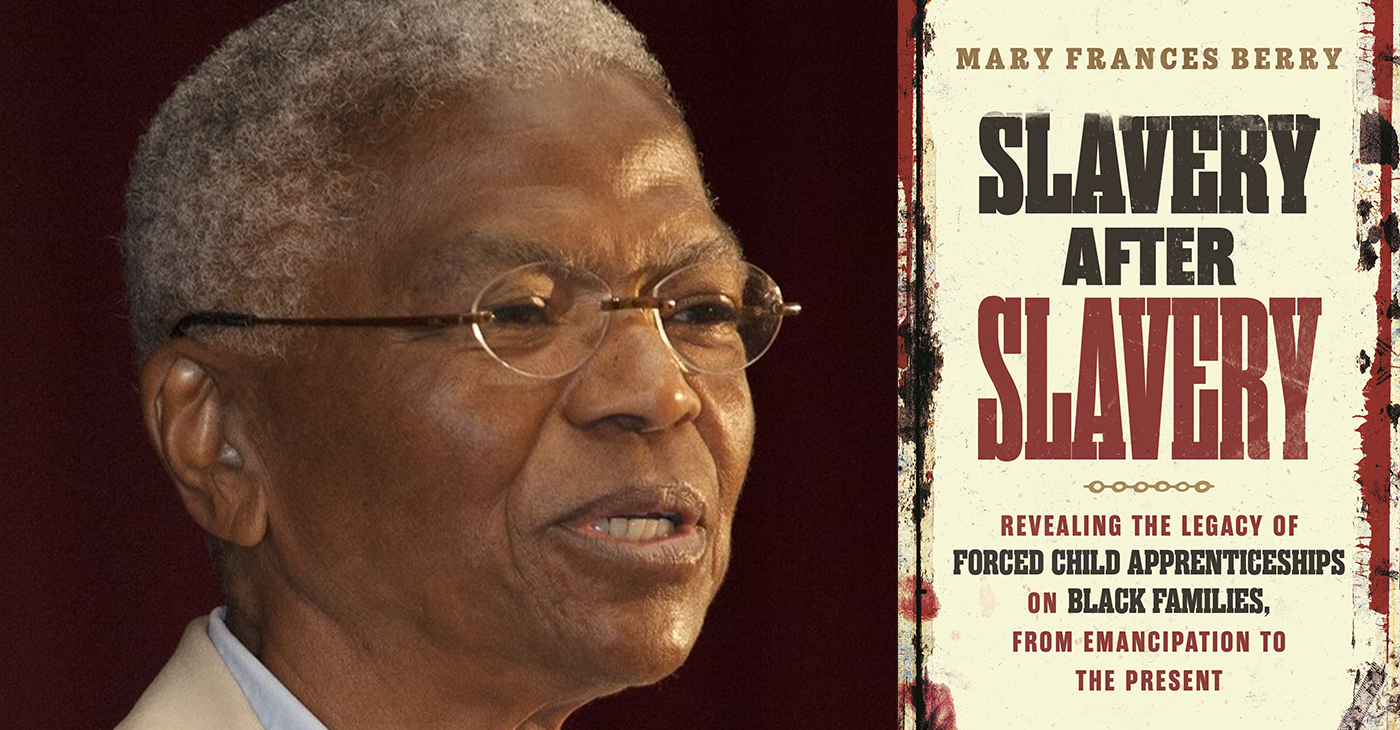
By Terri Schlichenmeyer
Author: Mary Frances Berry, c.2024, Beacon Press, $27.95
Your kids will have a better life than you had.
You’ll make sure of it, saving for their education, demanding excellence from them, requiring discipline, and offering support for their dreams and desires. Their success is your dream and, as parents did in the new book “Slavery after Slavery” by Mary Frances Berry, you’ll fight to see that it happens.
In the years after the end of the Civil War, some Southern former slave owners refused to accept that slavery was over, and the courts often sided with them. In particular, under habeas corpus, Black children were sometimes taken from their parents and placed into an “apprenticeship,” which was another word for “slavery” then. Berry estimates that more than two million 10-to-19-year-olds were trapped in this way for years.
Here, she shares the stories of many of them.
In late 1865, Nathan and Jenny Cox lost their five children to their former “master,” who also took seven other children by persuading a local magistrate to let him apprentice the kids. As time passed, some of the children took their former owner’s last name as their own which, in effect, erased their family’s history.
When six-year-old Mary Cannon was in danger of being apprenticed, a White woman came to her defense. Ultimately, the courts sided with Mary’s benefactor and the girl was returned to her parents to live on their former enslaver’s plantation.
Hepsey Saunders tried to leave her former owner’s plantation, but he “refused to let her take the children” that were born when she was enslaved. Though the theft of her children happened in 1865, the story lingered over a span of decades.
In most of the cases Berry cites, the families – with or without the return of their children – remained uneducated, unhealthy, and under discrimination. Imagine, she says, that these former slaves had had a chance to control their own lives. Imagine, she says, “if these Black people were permitted to pursue the American Dream.”
While it may seem that “Slavery after Slavery” is a historical narrative, that’s not all you’ll get if you tackle this skinny book.
When reading the stories inside, readers may struggle to keep track of what’s told. The accounts are a bit repetitious and each one packs a lot of names, legal decisions, court rulings, and places, some of which nearly require a law degree and all of which demand full attention. That can be overwhelming, unless you shut the door and avoid any distraction.
Berry uses these stories to point out lasting damage done to many Black families, which is essential info for readers to ponder. She goes further to argue that what happened to the two million children is reason enough for reparations, which makes a good argument, but it’s sometimes misplaced inside the flow of this book.
Still, readers will agree that the accounts Berry uncovered have been hidden too long, and shedding light on them is essential. “Slavery after Slavery” educates and could help enrichen conversations – and arguments – about the injustices and ongoing legacy of slavery.
Activism
Book Review: Author Juan Williams Makes Case for Second Civil Rights Movement in ‘New Eyes for This Prize’
History disagrees on the exact catalyst for the Civil Rights Movement. However, Williams says that “the second Civil Rights Movement” sparked at the 2004 Democratic National Convention, and it took less than 20 minutes.
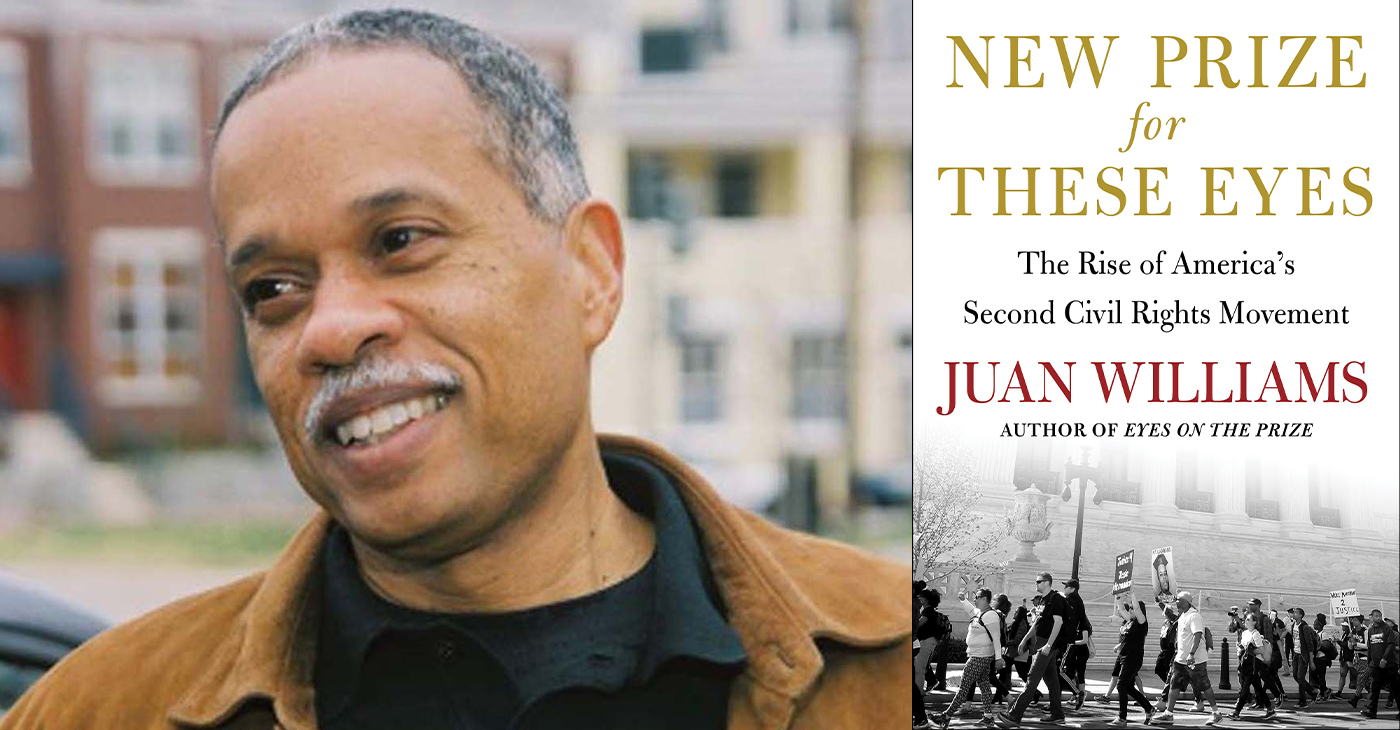
By Terri Schlichenmeyer
The Bookworm Sez
You’re not letting go that easily.
No, you’re on the right side of justice and you’re not letting go of the issue. Your heels are dug in, your back is straight, and your resolve is steely. You have a plan, and you’ll keep it, and see it to the end no matter what happens. As in the new book “New Prize for These Eyes” by Juan Williams, there are some who’ve gone before you, but your effort is what matters now.
History disagrees on the exact catalyst for the Civil Rights Movement. However, Williams says that “the second Civil Rights Movement” sparked at the 2004 Democratic National Convention, and it took less than 20 minutes.
Not long after young Senator Barack Obama, whose presence was meant to attract Black voters, began his speech at that convention, he had the audience cheering. He was positive, energetic, and energizing, and spoke of “a new sense of common purpose,” which spurred a Second Civil Rights Movement and a mandate to “deal with … cultural issues that the first Movement had left unresolved …”
The speech thrust Obama onto the national stage and, with the endorsement of many old guard Civil Rights Movement figures, ultimately put him in the White House. His presence there wasn’t without issues, both politically and racially, however: the deaths of Trayvon Martin, Michael Brown, and Philando Castile, and others, absolutely affected Obama’s terms, in part because “he acted only as a referee” and didn’t “take any special level of response as a Black man.” Still, early civil rights leaders agreed with him that America was “better” than it was 60 years ago.
Before Obama’s second term was over, a “right-wing backlash” that was “fueled by grievance” ushered Donald Trump into office but by then, young Black Americans had flocked to social media and gave root to the Black Lives Matter movement. “COVID-19 would also transform” the situation.
By the summer of 2024, “the Second Civil Rights Movement was far from completing its agenda,” says Williams, but “it had still achieved remarkable success.”
Pay very close attention while you’re reading this book. It’s filled with politics, but there’s a pay-off in it: Williams does a little forecasting toward the end of “New Prize for These Eyes,” promising readers a new movement, a third one, to come.
Even if you’re not particularly a politics-watcher, Williams draws your attention to the last 20 years and how they keenly shaped racism and racial issues in America. Sometimes, he seems to invite argument, using Obama as a singular catalyst for this “second” movement and its current continuation, fairly or unfairly.
He also credits other people and events that will make readers want to find someone to discuss his theories with. The tantalizing idea of a third movement will only underscore that desire.
As a sequel to Williams’ “Eyes on the Prize,” this is a must-read for anyone who knows where we’ve been or wonders where we’re going. Find “New Prize for These Eyes.”
You will not want to let it go.
“New Prize for These Eyes: The Rise of America’s Second Civil Rights Movement,” Author: Juan Williams c.2025, Simon & Schuster, $28.99.
Arts and Culture
BOOK REVIEW: On Love
King entered college at age fifteen and after graduation, he was named associate pastor at his father’s church. At age twenty-five, he became the pastor at Dexter Avenue Baptist Church in Montgomery, Ala. In late 1956, he was apprehended for his part in the bus boycott there, his first of many arrests for non-violent protests and activism for Civil Rights. But when asked if those things were what he hoped he’d be honored for in years to come, King said he wanted to be remembered as “’someone who tried to love somebody.’”
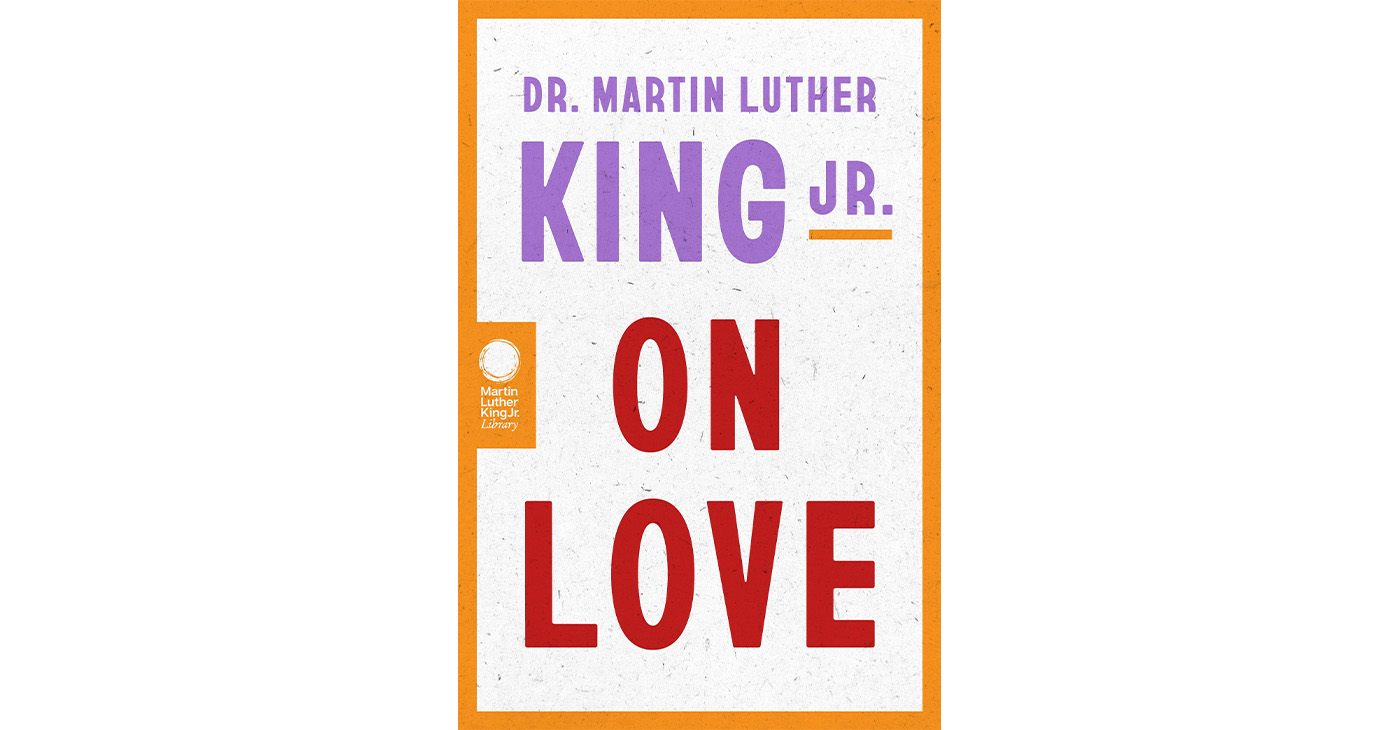
By Terri Schlichenmeyer
Author: Dr. Martin Luther King Jr., c.2024, Harper Collins, Martin Luther King Jr. Library, $18.99
Turn the volume up, please.
You need it louder because this is something you’ve been waiting to hear. You need to listen very closely; these words mean a great deal to you, and they might change your life. As in the new book, “On Love” by Dr. Martin Luther King, Jr., the message beneath the message is the most important.
As the grandson and great-grandson of pastors and the son of the senior pastor at Ebeneezer Baptist Church in Atlanta, it may seem as though young Martin Luther King, Jr., born in 1929, already had his life set.
King entered college at age fifteen and after graduation, he was named associate pastor at his father’s church. At age twenty-five, he became the pastor at Dexter Avenue Baptist Church in Montgomery, Ala. In late 1956, he was apprehended for his part in the bus boycott there, his first of many arrests for non-violent protests and activism for Civil Rights.
But when asked if those things were what he hoped he’d be honored for in years to come, King said he wanted to be remembered as “’someone who tried to love somebody.’”
His words, essays, letters, and speeches reflect that desire.
In a 1955 sermon in Montgomery, he used a parable to explain why White people needed love to gain compassion. In 1956, he wrote about the bombing of his home, telling his readers that no retaliation was needed, that to “confront the problem with love” was the righteous and better thing to do.
Later that year, he said, “I want you to love our enemies… Love them and let them know you love them.” And in November, 1956, he said, “If you have not love, it means nothing.”
“Love is the greatest force in all the world,” he said in 1962.
He wrote a book on the subject, Strength to Love, in 1963.
In 1967, just months before his assassination, he said that “power at its best is love.”
When we talk about Dr. King’s life and his legacy, so much focus is put on his work on behalf of Civil Rights and equality that it’s easy to lose sight of the thing which he felt was more important. In “On Love,” any omission is rectified nicely.
This book, “excerpted to highlight the material where King specifically addressed the topic of love,” is full of pleasant surprises, words with impact, and thought provokers. King’s speeches hammered home a need to love one’s enemies, woven into messages of gentle resistance and strength. He explained the different “levels” of love in a way that makes sense when related to equality and justice. The bits and pieces collected here will linger in reader’s minds, poking and prodding and reminding.
If your shelves are full of books about Dr. King, know that this is a unique one, and it’s perfect for our times, now. Don’t race through it; instead, savor what you’ll read and keep it close. “On Love” is a book you’ll want to turn to, often.
-

 Activism2 weeks ago
Activism2 weeks agoWe Fought on Opposite Sides of the Sheng Thao Recall. Here’s Why We’re Uniting Behind Barbara Lee for Oakland Mayor
-

 #NNPA BlackPress3 weeks ago
#NNPA BlackPress3 weeks agoRev. Dr. Jamal Bryant’s Black Church Target Boycott Mobilizes 150,000
-

 Activism3 weeks ago
Activism3 weeks agoSan Francisco Is Investing Millions to Address Food Insecurity. Is Oakland Doing the Same?
-

 #NNPA BlackPress2 weeks ago
#NNPA BlackPress2 weeks agoRecently Approved Budget Plan Favors Wealthy, Slashes Aid to Low-Income Americans
-

 Activism2 weeks ago
Activism2 weeks agoFaith Leaders Back Barbara Lee for Mayor, Criticize Candidate Loren Taylor for Dishonest Campaigning
-

 Activism3 weeks ago
Activism3 weeks agoOakland Post: Week of March 12 – 18, 2025
-

 Activism2 weeks ago
Activism2 weeks agoGroup Takes First Steps to Recall District Attorney Diana Becton
-

 #NNPA BlackPress3 weeks ago
#NNPA BlackPress3 weeks agoPRESS ROOM: The Urban One Podcast Network Announces Los Angeles Wildfires Podcast, ‘Altadena: After the Fire’











